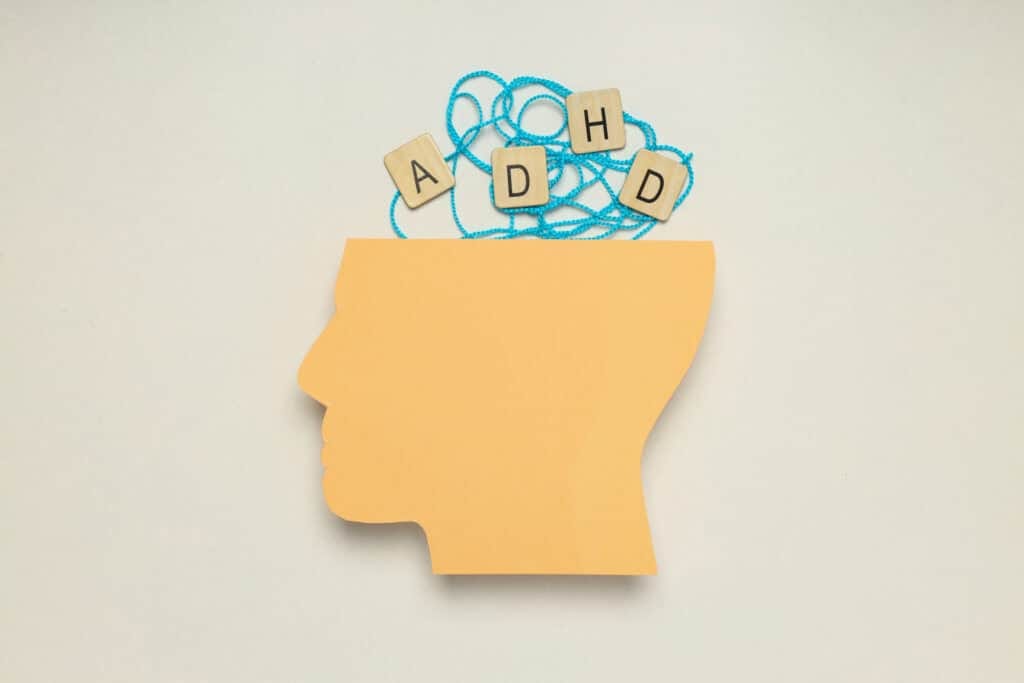Gratitude practice benefits are numerous and can significantly improve one’s overall well-being. By cultivating appreciation, a wide array of advantages can be observed in our mental health, relationships with others, and even physical well-being. This blog post will delve deeper into how to practice gratitude and how it contributes to a more fulfilling life.
We will explore different methods for keeping a gratitude journal, discuss the optimal frequency for journaling, and learn how mindfulness practices such as breathing exercises and meditation can aid in expressing gratitude. Furthermore, you’ll discover ways to strengthen relationships through grateful behavior like verbal appreciation or writing heartfelt thank-you notes.
Lastly, we’ll examine strategies for overcoming obstacles to gratitude practice – dealing with negative emotions while remaining grateful during difficult times. With these insights at your disposal, you’re sure to reap the full spectrum of Gratitude Practice Benefits that come from regularly expressing thanks.
The Benefits of Practicing Gratitude

Practicing gratitude can significantly improve mental health and relationships with others. It has been scientifically proven that expressing thankfulness can help relieve stress and pain and strengthen connections with friends and loved ones. Regularly practicing gratitude opens you up to a wealth of benefits that contribute to your overall well-being.
Mental Health Improvements
One of the most significant gratitude benefits is its positive impact on mental health. Cultivating gratitude helps individuals develop a more optimistic outlook on life by focusing on the positive aspects rather than dwelling on negative emotions. A regular gratitude practice has been linked to reduced feelings of envy, resentment, frustration, and regret – all factors contributing to better mental well-being.
- Reduced Stress: Gratitude reduces stress by shifting our focus from what we lack or desire in life towards appreciating what we already have.
- Better Sleep: Studies show that grateful people tend to sleep better as they are less likely to ruminate over negative thoughts before bedtime.
- Increase in Positive Emotions: Expressing gratitude increases positive emotions such as joy, contentment, pride, and hopefulness, which leads to an overall happier disposition.
Social Benefits of Practicing Gratitude
Apart from improving one’s mental state through practicing gratitude exercises like keeping a gratitude journal, there are also numerous social benefits. Gratitude can lead to improved connections, greater self-regard, and a propensity for helpful conduct.
- Stronger Relationships: Expressing gratitude towards friends and family members strengthens bonds by fostering better communication and understanding within these relationships.
- Better Self-Esteem: When we appreciate the good things in our lives, we develop a healthier sense of self-worth, leading to higher self-esteem.
- Prosocial Behavior: Practicing gratitude makes individuals more empathetic, compassionate, and willing to help others – all traits that contribute positively towards society at large.
Physical Health Benefits
In addition to mental health improvements and social advantages, practicing gratitude can also positively impact physical health. By focusing on the positive aspects of life rather than negative emotions or chronic pain issues, grateful individuals often experience an overall healthier lifestyle with fewer illnesses and ailments plaguing their everyday life. Some key areas where gratitude improves physical health include:
- Better Immune System Functioning: A regular practice of expressing gratitude has been linked with improved immune system functioning due to its ability to reduce stress levels – a known factor affecting immunity negatively.
- Pain Management: Those who maintain a grateful disposition may find coping with chronic pain conditions easier by viewing them more positively instead of allowing them control over daily experiences.
- Reduced Blood Pressure: A study by Dr. Paul J Mills found that participants who practiced daily expressions of thankfulness experienced lower blood pressure readings than those not engaging in such activities.
Expressing appreciation can be advantageous, resulting in enhanced psychological and physical well-being. Keeping a gratitude journal is one way to cultivate an attitude of thankfulness that can help us reap these rewards.
Keeping a Gratitude Journal

One effective way to practice gratitude is by keeping a gratitude journal, where you write down up to five things for which you feel grateful. This could include positive experiences or even negative outcomes that were avoided. Maintaining this habit will allow you to reflect on the good aspects of your life and cultivate an optimistic outlook, thus improving your mental well-being.
Choosing the Right Format for Your Journal (Physical or Digital)
The first step in starting a gratitude journal is deciding whether you prefer a physical notebook or a digital platform. Both options have their advantages: A traditional notebook offers tactile satisfaction and can be easily customized, while digital platforms like Day One or Evernote provide convenience and accessibility from multiple devices. Ultimately, choose the format that best suits your preferences and lifestyle.
Setting Aside Dedicated Time for Journaling
To reap the full benefits of practicing gratitude, it’s essential to set aside dedicated time for writing in your journal regularly. Consistency plays an important role in cultivating gratitude as it helps develop a grateful disposition over time. Consider setting aside 10-15 minutes each day – perhaps during breakfast, before bed, or after dinner – when you can focus solely on expressing gratitude without distractions.
Tips:
- Create reminders on your phone/calendar so that journaling becomes part of your daily routine.
- If possible, designate a specific space at home where you’ll always write in order to create consistency within this practice.
To foster the beneficial effects of gratitude such as lower stress, better mental health, and stronger social connections, select an appropriate format for your journal and make time to write regularly. As you continue this journey towards a healthier life filled with appreciation, remember that it’s never too late to start expressing gratitude in your everyday life.
Maintaining a Gratitude Journal can be a powerful tool to bring awareness to the good in life and nurture more appreciation. By determining the optimal frequency for journaling, you can maximize its benefits and make it part of your daily routine.
Optimal Frequency for Journaling
While it may seem logical to assume that the more frequently you write in your gratitude journal, the greater its benefits will be, research suggests otherwise. In fact, studies have shown that writing occasionally (1-3 times per week) is more beneficial than daily entries. Striking the right balance between frequency and depth allows you to maintain enthusiasm while still reaping the positive impacts of practicing gratitude.
Finding Your Ideal Schedule
Try experimenting with various frequencies to observe how they affect your mental well-being and overall outlook on life. Some people might find that writing once a week provides enough reflection time without feeling overwhelmed or pressured; others may prefer a slightly higher frequency like two or three times weekly.
- Mondays: Start your week off on a positive note by reflecting on things you’re grateful for from the previous weekend.
- Wednesdays: Midweek can be an ideal time to pause and appreciate small victories or moments of joy during everyday life.
- Sundays: As you prepare for another busy workweek ahead, take some time to express gratitude for any personal growth or lessons learned throughout the past seven days.
Maintaining Quality Over Quantity
Rather than focusing solely on increasing entry frequency in your gratitude journal, pay attention to their quality as well. Instead of listing superficial items quickly just because it’s “journal day,” try delving deeper into each item by exploring why it significantly impacted your happiness levels – this will help cultivate a more profound sense of gratitude and appreciation for the positive aspects of your life.
Adapting Your Practice Over Time
As you continue regularly practicing gratitude, it’s essential to remain flexible and open to adjusting your journaling frequency as needed. Life conditions can alter quickly, and what worked in the past may not be suitable for present circumstances. By staying attuned to your needs and feelings, you’ll be better equipped to maintain a consistent practice supporting long-term happiness and mental health.
Logging regularly can assist in recognizing the gifts that life offers, yet it is crucial to find a suitable rate of doing so that suits you. Mindfulness can be a great tool to assist with practicing gratitude and incorporating meditation into your routine.
You can learn more about journaling for mental health here.
Mindfulness as an Aid in Practicing Gratitude

Combining mindfulness techniques with expressions of gratitude can further enhance their positive effects on mental health. Being present in each moment makes us more aware of our emotions, thoughts, and surroundings – making it easier to identify reasons to be thankful.
Breathing Exercises for Cultivating Mindfulness
One simple way to practice mindfulness is through breathing exercises. These exercises help you focus your attention on the breath while letting go of any distractions or negative thoughts that may arise. Here are a few breathing techniques you can try:
- Diaphragmatic Breathing: Breathe deeply into your diaphragm rather than shallowly into your chest. This helps activate the body’s relaxation response and promotes a sense of calmness.
- The 4-7-8 Technique: Inhale for four counts, hold your breath for seven counts, then exhale slowly over eight counts. Repeat this cycle several times until you feel more relaxed and focused.
- Nadi Shodhana (Alternate Nostril Breathing): Close one nostril with your thumb while inhaling through the other nostril; switch sides when exhaling. This technique balances both hemispheres of the brain and enhances concentration.
Incorporating Meditation into Your Routine
By engaging in meditation, we can foster a deeper connection with ourselves and our environment while cultivating gratitude, thus improving mental well-being. Regular meditation practice has been shown to improve mental well-being by reducing stress levels, increasing self-awareness, and fostering a more positive outlook on life. There are various forms of meditation you can explore, such as:
- Mindfulness Meditation: Focus your attention on the present moment without judgment or attachment to thoughts that arise.
- Loving-Kindness Meditation (Metta): Cultivate feelings of love and compassion for yourself and others by silently repeating phrases like “May I be happy” or “May all beings be free from suffering.”
- Guided Imagery: Use visualization techniques to imagine yourself in a peaceful setting, focusing on the sensory details to promote relaxation and mental clarity.
Incorporating mindfulness practices into your daily routine can significantly enhance the benefits of practicing gratitude. By becoming more aware of our emotions, thoughts, and surroundings through these exercises, we’re better equipped to recognize reasons for thankfulness in everyday life – ultimately leading us toward greater happiness and well-being.
Mindfulness can aid in fostering gratitude, as it encourages us to pause and recognize life’s little joys. We can strengthen our relationships through gratitude by expressing appreciation regularly and writing heartfelt thank-you notes.
Strengthening Relationships through Gratitude

Showing appreciation towards friends and family members strengthens bonds and fosters better communication within these relationships. When people express their thanks genuinely, they create an atmosphere filled with positivity and mutual support. By incorporating gratitude into your interactions, you can experience the numerous social benefits that come from regularly practicing gratitude.
Expressing Verbal Appreciation Regularly
Making a conscious effort to thank those around you for their kindness or assistance can have profound effects on both parties involved. Studies indicate that people who demonstrate gratitude often experience increased self-esteem and greater social support from those around them. To cultivate this grateful disposition, try expressing verbal appreciation to at least one person each day – whether it’s thanking a coworker for their help or telling a friend how much they mean to you.
Writing Heartfelt Thank-You Notes
Beyond verbal expressions of gratitude, writing personalized thank-you notes is another powerful way to convey your appreciation toward others. In fact, research suggests that writing gratitude letters has significant positive impacts on mental health and happiness levels. Taking the time to put pen to paper (or fingers to keyboard) demonstrates genuine thoughtfulness and care – qualities that strengthen connections between individuals.
Tips for Writing Meaningful Thank-You Notes:
- Be specific about what you are thankful for in relation to the recipient’s actions or character traits.
- Describe the positive emotions you experienced as a result of their kindness or support.
- Express your desire to reciprocate their generosity in the future, fostering an ongoing cycle of gratitude and prosocial behavior.
Making use of these customs in our everyday lives can lead to more robust connections with the people around us. As you continue to express gratitude towards others, both parties will experience increased feelings of happiness and satisfaction – contributing to long-term happiness rather than short-term gratification. Strengthening relationships through gratitude fosters a more supportive and loving environment for ourselves and our loved ones.
Gratitude is invaluable for strengthening relationships and expressing appreciation to those we care about. Cultivating a family culture of gratitude can help foster positive communication, build stronger bonds, and create meaningful memories together.
Cultivating a Family Culture of Gratitude

Encouraging every member of a family unit to practice gratitude helps foster closer ties among them all. Sharing moments of thankfulness together can create a strong foundation for nurturing love, understanding, and empathy within the family. By regularly engaging in gratitude practices, you can not only enhance your own mental health but also foster an atmosphere of positivity and support.
Creating Gratitude Rituals at Mealtime or Bedtime
One way to incorporate gratitude into your family’s routine is by establishing rituals during mealtime or bedtime. For example, each person could share one thing they are grateful for that day before enjoying dinner together or while tucking in for the night. This simple act encourages open communication and allows everyone to reflect on the positive aspects of their day.
Sharing Positive Experiences During Family Gatherings
Research shows that discussing positive experiences with others can amplify our feelings of happiness and satisfaction. Make it a point to share stories about things you’re grateful for during family gatherings – whether it’s something as small as finding a great parking spot or as significant as receiving praise at work. These conversations help reinforce an optimistic outlook on life and encourage everyone present to focus on the good things happening around them.
Tips for Encouraging Grateful Behavior Among Family Members:
- Praise acts of kindness: When someone in your family does something kind or helpful, acknowledge their actions by expressing how much you appreciate what they did.
- Model gratitude: Children learn by example, so make sure to demonstrate your own grateful disposition regularly. This will help them develop a similar attitude as they grow up.
- Encourage empathy: Teach your children to put themselves in others’ shoes and consider how their actions might affect those around them. Developing empathy is an important step toward cultivating gratitude.
By nurturing an atmosphere of thankfulness within your family, you can create a positive and supportive environment that fosters mental health and social development. Remember that practicing gratitude is a lifelong journey that requires patience, dedication, and the willingness to overcome obstacles along the way.
Family members can foster strong connections and create cherished memories by regularly expressing appreciation for one another; however, it is essential to be aware of any potential impediments that may arise. By recognizing these challenges and developing strategies for overcoming them, we can better equip ourselves with the tools needed to make our gratitude practice successful.
Overcoming Obstacles to Gratitude

It is natural to face challenges when trying to maintain a consistent practice of gratitude. Recognizing these obstacles and finding ways to overcome them will help you stay committed and reap the benefits of this powerful habit.
Dealing with Negative Emotions While Practicing Gratitude
Negative sentiments, like rage, disappointment, or sorrow, can sometimes make it hard for us to concentrate on the beneficial parts of our lives. However, it’s important not to let these feelings prevent us from expressing gratitude. One effective way is acknowledging both the good and bad experiences, which helps develop a more balanced perspective.
- Journaling: Writing about negative emotions alongside things you’re grateful for can provide an outlet for your feelings while still maintaining a focus on positivity.
- Meditation: Practicing mindfulness meditation allows you to observe your thoughts without judgment, making it easier for you to accept negative emotions and cultivate gratitude at the same time.
- Social support: Sharing your struggles with friends or family members who practice gratitude can encourage and motivate you during challenging times.
Staying Motivated in Difficult Times
Maintaining a regular gratitude practice might seem daunting during tough periods in life; however, staying motivated becomes easier when we remind ourselves of its long-term benefits. Here are some tips that may help keep you inspired:
- Set realistic goals: Start by setting small, achievable objectives for your gratitude practice, such as writing in a gratitude journal once a week or expressing appreciation to one person per day.
- Create reminders: Place visual cues around your home or workspace that remind you of the importance of practicing gratitude. This could be an inspirational quote on your wall or a daily calendar with positive affirmations.
- Reward yourself: Celebrate milestones and achievements in your gratitude journey by treating yourself to something special, like taking time out for self-care or indulging in a favorite hobby.
- Join a community: Connect with others who share similar values and interests through online forums, social media groups, or local meetups focused on cultivating gratitude and positivity.
Incorporating these strategies into everyday life can help you overcome obstacles and consistently stay committed to practicing gratitude. Remember that it’s okay if progress is slow; what matters most is maintaining an optimistic outlook while embracing both the ups and downs along the way.
Frequently Asked Questions
How Can I Start Practicing Gratitude On A Daily Basis?
Practicing gratitude on a daily basis is an effective way to boost your mental health and overall sense of well-being. It’s easy to start, too – all you need to do is consciously acknowledge what you’re thankful for. Every day, take a few moments to recognize the people, places, and experiences you’re grateful for. You can make a list of these items or simply think about them internally. Doing this will help remind you of how blessed you are and put life into perspective.
What Are The Long-Term Effects Of Being Grateful?
Practicing gratitude on a daily basis can have long-term positive effects on our lives. Studies show that consistently expressing thankfulness can lead to increased happiness, improved physical health, better sleep, increased resilience in the face of stress and adversity, and improved overall well-being. Furthermore, those who practice gratitude develop stronger relationships with family and friends and are better able to cope with difficult situations. In short, gratitude is a powerful tool for improving our mental, emotional and physical well-being.
How Does Expressing Gratitude Help To Build Relationships?
Expressing gratitude is an important part of building relationships. When we express our appreciation for someone, it lets them know that we value their efforts and that we care about them. This kind of acknowledgment helps create a mutual feeling of trust, respect, and connection between people, leading to deeper relationships over time. It also encourages others to show more kindness and support in return.
Does Practicing Gratitude Have An Impact On Physical Health?
Practicing gratitude has been shown to have a positive impact on physical health. Studies have revealed that individuals who show appreciation and thankfulness for the good things in life tend to experience better mental and emotional well-being, which can result in improved physical health. Expressing gratitude can also reduce stress levels, resulting in lower blood pressure and a stronger immune system. Furthermore, grateful people are more likely to take better care of themselves by engaging in healthy activities like exercise, getting enough sleep, and eating nutritious foods.
Can Expressing Gratitude Help Those With Mental Health Issues?
Expressing gratitude can be a helpful tool in managing mental health issues. Research shows that those who practice gratitude regularly are more likely to experience positive emotions and improved psychological well-being. Practicing gratitude can also help reduce stress and depression, as well as help build resilience in the face of adversity. Expressing gratitude is an effective way to bring perspective and appreciation into one’s life, which can ultimately lead to better mental health outcomes.
Conclusion
Practicing thankfulness has numerous advantages for our psychological and physical prosperity, as well as how we connect with others. By keeping a gratitude journal, cultivating mindfulness, expressing appreciation regularly, and creating a family culture of gratitude, we can experience the positive impacts of this practice in our everyday lives.
Incorporating these habits into our daily routine may be challenging at first, but staying motivated during difficult times and overcoming obstacles to gratitude can help us maintain a grateful disposition. Overall, regular gratitude practice can lead to long-term happiness and healthier life outcomes.









